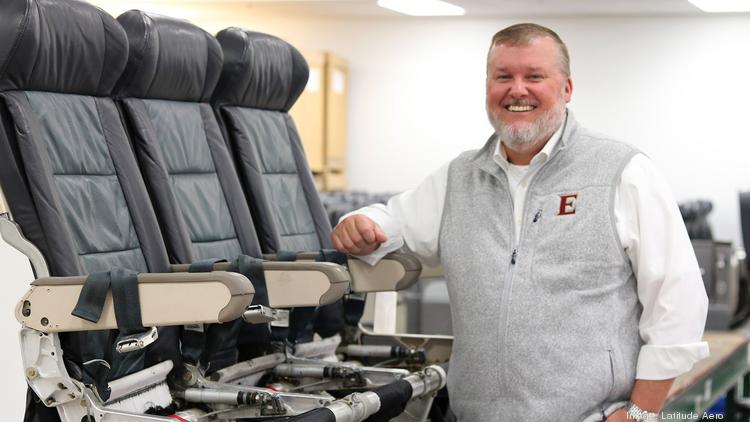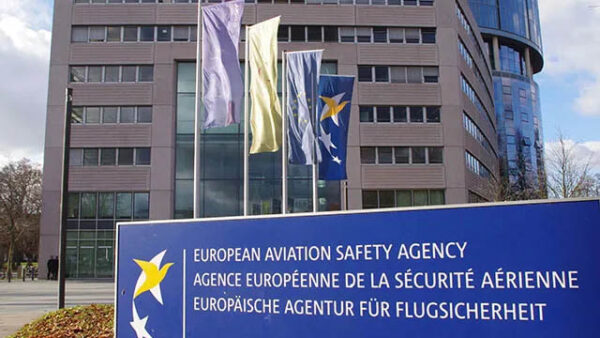The Impact of Global Events: Latitude Aero Helps Airlines Adapt to Post-Covid Environment and Enhance Passenger Comfort
In the face of disruptions to air travel caused by global events, it’s not only airlines and airports that are affected, but also supply chain providers. However, amidst the chaos, some innovative providers are finding opportunities.
Greensboro-based Latitude Aero, a specialist in refurbishing and electrifying airline seats, is at the forefront of assisting commercial passenger aircraft operators in modifying their seating configurations to adapt to the post-Covid era. In a departure from the longstanding trend of tighter rows to maximize capacity, the company is helping airlines create more legroom in passenger cabins.
Kelvin Boyette, the founder, President, and CEO of Latitude Aero, has observed the rebound in leisure travel during his recent frequent flights. However, he recognizes that business travel is lagging behind. While virtual meetings have become commonplace, vacations cannot be replicated in the same way.
“Planes are full, airports are full, and I think tourism recovery is way ahead, which is good,” Boyette said. “But the fact that the load factor of business travel is lower compared to the number of leisure travelers is a problem because business travelers are the high-dollar, last-minute tickets that usually drive profits. More people flying doesn’t necessarily mean airlines are making more money.”
Latitude Aero primarily works with smaller operators that provide charter services for sports teams, large corporations, touring bands, and more. Boyette reveals that a significant portion of the company’s new business comes from airlines converting narrow-body aircraft, such as the Airbus 320 family and Boeing 737 family, from the typical 150-seat configuration into 40 to 50 all-first-class airplanes with lie-flat seating.
In December 2020, Latitude Aero expanded its facilities to 100,000 square feet in Air Park North, just outside the fence line at Piedmont Triad International Airport. To accommodate the growing business, Boyette plans to increase his local workforce of 14 by adding 20 new jobs.
“While I can’t disclose the names of the companies, there are many of them that, post-Covid, are considering putting those same executives who used to fly coast to coast for meetings in first class, on a corporate shuttle route,” Boyette explained. “Between four different customers, we have 18 aircraft being converted to this configuration.”
Latitude Aero’s role in the reconfiguration process includes collaborating with smaller seat manufacturers that compete with larger companies in the industry to supply seats for the reconfigured aircraft. This necessitates forging partnerships with former competitors.
“Before Covid, most seat manufacturers disliked refurbishing places like ours because we took away their business,” Boyette noted. “Now, some of the smaller seat manufacturers are seeking partnerships. The larger seat manufacturers are typically not agile enough to design, certify, and bring a seat to market for a specific installation in just 10 to 12 months.”
“The smaller seat manufacturers also recognize this market opportunity, and a couple of them are eager to work with us. We may even manufacture parts of their seats here in Greensboro to reduce labor costs and turnaround time. By handling final assembly and some finishing locally instead of in Europe, they can save money.”
Latitude Aero is also adapting lie-flat seats removed from the first-class cabins of wide-body aircraft that are currently parked in the desert, potentially permanently. These seats are being repurposed for narrow-body planes.
Boyette perceives this emerging trend as an acknowledgment that business travel may never fully return to pre-Covid levels. Instead, it will become more purposeful and, to attract those passengers, it must offer greater comfort. While there will still be a demand for face-to-face interactions, Boyette himself had plans to travel to Beirut, Lebanon, for business discussions.
“All the predictions, regardless of their perspective, have proven to be wrong,” Boyette remarked. “Optimists predicted air travel would recover in four to seven years, while pessimists claimed it would take seven years. Based on what I’ve witnessed in airports and on airplanes, they are filled with leisure travelers.”
“I don’t believe business travel will ever fully recover because Zoom meetings have become widely acceptable. Salespeople won’t simply hop on an airplane for a dinner meeting. I don’t think we’ll ever return to the old ‘normal’.”


